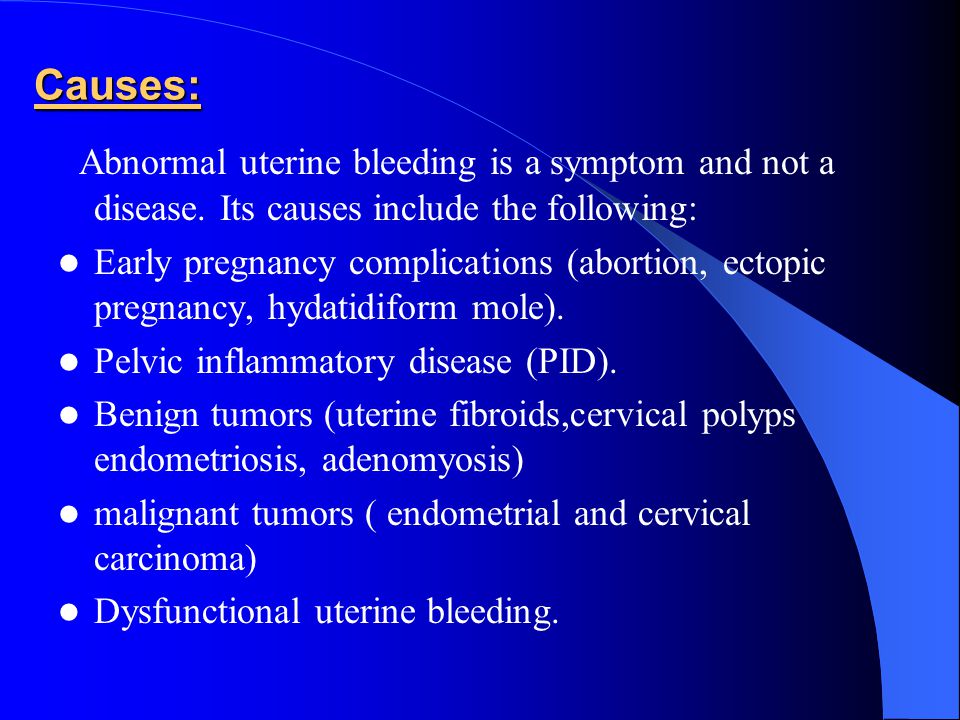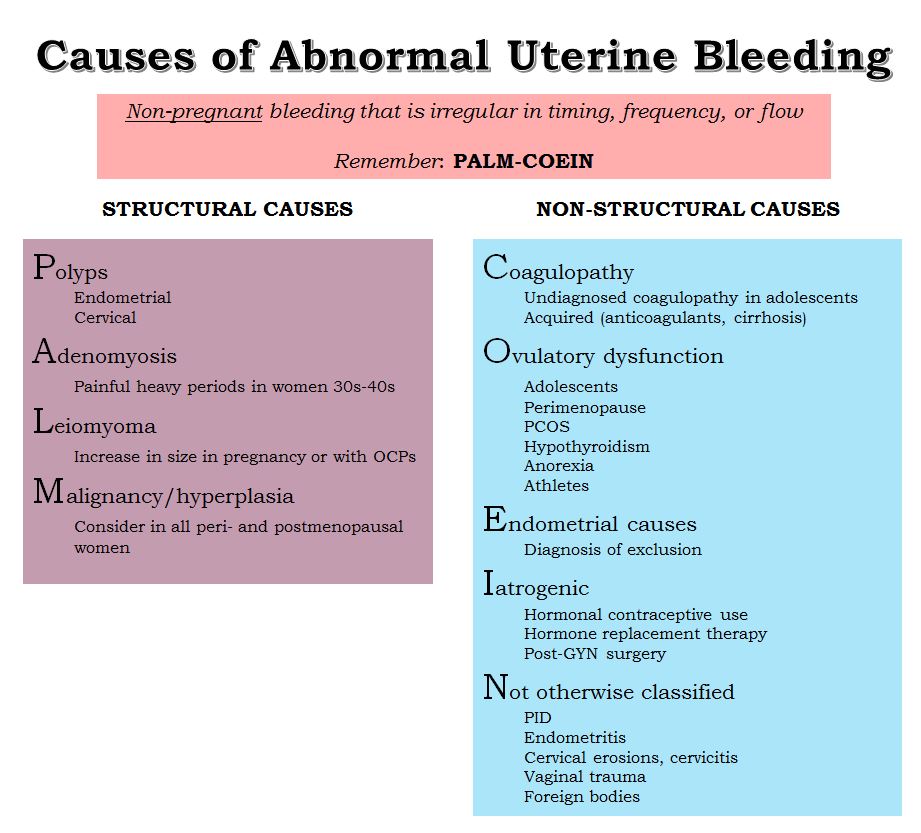After a miscarriage emotional
Your feelings and emotions after miscarriage
Loss of trust in your body
You may feel let down by your body or that it has played tricks on you, particularly if you had a missed miscarriage and had no symptoms. You might feel a strange disconnect between you and your body. You may feel this same lack of faith in your body in future pregnancies and resent the fact that you’re unable to enjoy your pregnancy.
Don’t forget that you will be affected physically, as well as emotionally. Your hormone levels are rapidly changing after a miscarriage, and mood swings and tears are normal. It may take a bit of time before your body feels normal again. The mind can affect the body and vice versa. Try to take care of your physical and emotional health as best you can.
“‘The trouble with miscarriage is that most people don’t understand what it is you’ve actually lost. I’ve lost my babies. I’ve lost the ability to be excited about pregnancy. I’ve lost trust in my body, in hospitals and in statistics.
Most of all I’ve lost faith, in myself and in the future.” Melissa's story. Read more...
Confusion
If your pregnancy wasn’t planned, you might be struggling with conflicting emotions. It could be that you were unsure about pregnancy and didn’t expect to feel so strongly about the loss. You may even feel guilty about being a little relieved. On the other hand, you may find other people assume you are feeling relieved when you are anything but, which can be very upsetting.
Loneliness
Some women find themselves feeling alone in their grief because nobody knew they were pregnant in the first place. It can also be very difficult if other people’s reactions to your loss are unhelpful or upsetting.
Some couples may also worry that their loss has affected their relationship with their partner.
Think about whether you might want to tell your employer, a close colleague, friends or family. Being able to talk about your loss might help you to feel less lonely and better supported.
“I for one found the thought of waiting 3 months to tell our families and close friends impossible. The way they shared in our excitement and later our grief really meant something to us. I found it almost impossible to tell anyone at work, so I didn’t feel I could share my loss. I had a silent scream in my head I couldn’t let out.”Read more...
How do I cope with these emotions?
There is no easy way to grieve after something like this happens, but there are some practical things you can do that may help.
Allow yourself to feel sad
Try not to push yourself, feel guilty about feeling sad or try to force yourself to feel happy, even if a lot of time has passed since your miscarriage. Feeling sad is a healthy part of the grieving process.
Commemorate your loss
A lot of people like to find a special way to remember their baby or to do something that makes them feel like they’ve said a proper goodbye.
Find out more about remembering your baby after a miscarriage.
Express yourself
You and your partner have been through a traumatic experience and you may both find it helpful to find ways to express how you feel.
Some people find keeping a diary or journal helps them make sense of their feelings. Sometimes just the act of writing down your thoughts and feelings down is effective.
Try to talk to someone about how you feel. If you have a partner, it’s a good idea to try to support each other. Be aware that you may have different feelings and ways of coping. This doesn’t mean you don’t love each other.
Sometimes it can help to talk to a professional counsellor, either as a couple or on your own. Your GP can refer you to NHS counselling services or you may be able to refer yourself. You can also contact the British Association for Counselling and Psychotherapy to find a local private service.
Sleep
Emotional stress can make you very tired, but you may also find it difficult to sleep. See your GP if you’re struggling.
Eat healthily
You may be finding it difficult to eat, but it’s important to try and eat a healthy, well-balanced diet.
Avoid 'numbing' the pain
Avoid things that ‘numb’ the pain, such as alcohol. It'll make you feel worse once the numbness wears off.
If you are finding it hard to cope
Sometimes grief can be overwhelming. If you are struggling to cope with your feelings, you are not alone.
It is possible to develop mental health problems because of the grief caused by losing a baby. Depression and anxiety are common, but some women may develop other issues, such as post-traumatic stress disorder (PTSD) or perinatal obsessive compulsive disorder (OCD).
"I struggled with anxiety and felt very low. In fact, I felt like I was losing my mind."
Toni. Read her story...
Talk to your GP if you are worried about how you or someone else is feeling. There is support available and mental health problems are treatable.
You can also talk to a Tommy’s midwife free of charge from 9am–5pm, Monday to Friday on 0800 0147 800 or you can email them at [email protected]
You can also join the Tommy's Baby Loss Support Group on Facebook for those who have experienced any type of baby loss.
More information and support
Anxiety UK is an organisation run by with anxiety disorders, offering information, support and therapies for people experiencing anxiety.
British Association for Counselling and Psychotherapy (BACP) provides information for those who are considering some form of counselling. Call them on 01455 883316.
MIND is a mental health charity providing information, support, local groups and an online chatroom. They have specific information about postnatal depression and perinatal mental health, including postnatal PTSD and birth trauma.
No Panic provides online and telephone support for people suffering from panic attacks, phobias, Obsessive Compulsive Disorder, and anxiety disorders.
After a Miscarriage: Surviving Emotionally
First of all, we are so sorry that you’ve experienced a loss that has brought you to this page. We and so many women in similar situations all over the world grieve with you and want to remind you that no matter how you feel, the truth is that this is not your fault. It’s important to take time after a miscarriage to heal not only physically but emotionally too.
Experiencing a pregnancy loss means that you are probably feeling more sadness than you ever thought possible. Having a miscarriage can be very difficult. The emotional impact usually takes longer to heal than physical recovery does. Allowing yourself to grieve the loss can help you come to accept it over time.
Women may experience a roller coaster of emotions such as numbness, disbelief, anger, guilt, sadness, depression, and difficulty concentrating. Even if the pregnancy ended very early, the sense of bonding between a mother and her baby can be strong.
Some women even experience physical symptoms from their emotional distress. These symptoms include:
- fatigue
- trouble sleeping
- difficulty concentrating
- loss of appetite
- frequent episodes of crying
- broken or suffering relationships with family or friends
- self-harm/suicidal attempts or actions
The hormonal changes that occur after miscarriage may intensify these symptoms.
What should I expect After a Miscarriage?
The grieving process involves three steps:
Step 1: Shock/Denial
“This really isn’t happening; I’ve been taking good care of myself.” “Maybe the doctors are wrong…maybe I’m still pregnant.”
We’re not going to lie to you, it’s going to be a difficult thing to accept. Talk with your doctor about what this might look like physically for you. When will your hormone levels return to normal? How long might you still have symptoms for? This may give you more guidance into what to expect, and talking about practicals surrounding the situation may feel cold, but it may give you more to grasp at as you try to understand what this means for you.
Step 2: Anger/Guilt/Depression
“Why me? If I would have…” “I’ve always wanted a baby so bad, this isn’t fair!” “I feel sadness in my life now more than ever.”
You may feel angry – angry at your doctor, your partner, yourself, God, your situation…you name it. Maybe you think the doctors could have done more, or you’re angry that your partner isn’t consoling you in just the right way, or that he’s not as torn up about it as you are. If you have strong spiritual beliefs, you may yell at God or be angry that “He let this happen.”
But most of the time, you’re angry at yourself. You might even feel guilt and question if it was your fault as if you could have done more. The incredibly important thing we want you to know is that with miscarriage, it’s not your fault. As hard as it is to hear, it is a natural occurrence, and even if you were doing all the right things, it may still happen anyway.
When something goes wrong, we all stretch to find someone, something to blame.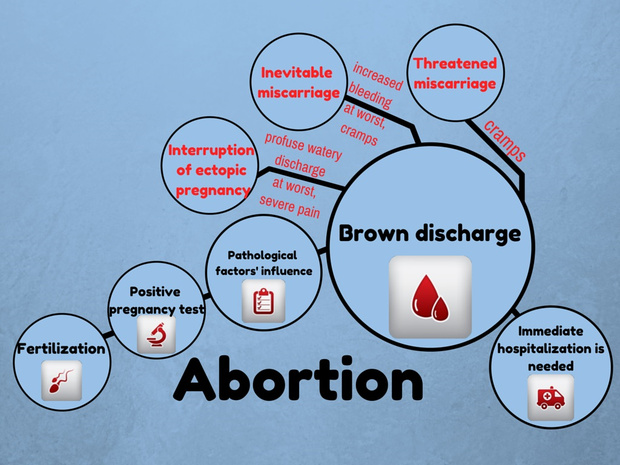 With miscarriage, there’s not really anyone or thing to blame, and it leaves us grasping for some way to make sense of what happened, leaving misplaced anger and guilt. And as you’re experiencing all these confusing emotions, all of this can lead to depression.
With miscarriage, there’s not really anyone or thing to blame, and it leaves us grasping for some way to make sense of what happened, leaving misplaced anger and guilt. And as you’re experiencing all these confusing emotions, all of this can lead to depression.
The one thing we can tell you is to get help. Talk about what’s going on with your partner, a trusted friend, a counselor, or a spiritual leader or mentor. If you’re not ready to talk, write it down. If you’re angry, write a letter and get it out of your system. Listen to some music, cry in the shower, go for a long walk with your dog (if you have one). Find some way to experience these strong feelings but in a safe way.
Step 3: Acceptance
“I have to deal with it, I’m not the only one who has experienced this. Other women have made it through this, maybe I should get some help.”
This is what this expected roller coaster of emotions has led to this is real, isn’t it? This is really happening. Once you get to this point, you are ready to look this in the eye and figure out how to live with your loss. Acceptance doesn’t mean that you’re okay with what happened, that you’re not still experiencing a million emotions – it simply means that you confirm in your mind that this is real.
Once you get to this point, you are ready to look this in the eye and figure out how to live with your loss. Acceptance doesn’t mean that you’re okay with what happened, that you’re not still experiencing a million emotions – it simply means that you confirm in your mind that this is real.
That doesn’t mean it’s easy from this point on, it just means that you know and understand what you’re dealing with. This is the time that a lot of women and their significant others are able to seek counseling or support groups, or are able to open up about their experiences.
Each step takes longer to go through than the previous one. There are unexpected and sometimes anticipated triggers that lead to setbacks. Examples of potential triggers include baby showers, birth experience stories, new babies, OB/GYN office visits, nursing mothers, thoughtless comments, holidays, and family reunions.
How can I survive my pregnancy loss?
Respect your needs and limitations as you work through your grief and begin to heal.
As you work through this difficult time:
- Reach out to those closest to you. Ask for understanding, comfort, and support.
- Seek counseling to help both yourself and your partner. You don’t have to face this alone.
- Allow yourself plenty of time to grieve and the opportunity to remember.
How Women and Men Grieve Differently:
Generally, women are more expressive about their loss and more likely to seek support from others. Men may be more action-oriented, tending to gather facts and problem solving, and therefore often do not choose to participate in support networks that consist of sharing feelings. This does not mean he is not grieving. Often men bury themselves in work when they are grieving.
Parents experience different levels of bonding with a baby. The bond between a pregnant woman and the baby growing inside her is unique. A woman can begin bonding from the moment she has a positive pregnancy test. Bonding for the father may start as he experiences physical signs of the baby, such as seeing an ultrasound picture or feeling the baby kick.
However, especially for men, real bonding may not develop until after the baby is born. This is why men may seem less affected when the loss of the baby occurs early in pregnancy. These differences may cause strain in your relationship as you try to come to terms with the loss.
After a Miscarriage, You can help your relationship to survive by:- Being respectful of and sensitive to each other’s needs and feelings.
- Sharing your thoughts and emotions by keeping communication lines open.
- Accepting differences and acknowledging each other’s coping styles.
Understanding Your Healing Rights:
Healing doesn’t mean forgetting or making memories insignificant. Healing means refocusing.
You have the right to:
- Know the facts about what happened and potential implications for the future. Seek answers to your questions, look at the medical records, and take notes.
- Make decisions about what you would like to do with your maternity clothes and baby items.
 Others might try to make quick choices for you; instead, use others to help you figure out what option is best for you.
Others might try to make quick choices for you; instead, use others to help you figure out what option is best for you. - Protect yourself by avoiding situations that you know will be difficult. Set realistic goals for yourself. For example, focus on coping throughout each day rather than the entire week.
- Take time to grieve and heal. There is no set time allotment for healing nor is it something that can be rushed.
- Receive support even though this may not be easy for you. If you feel out of control or overwhelmed, consider seeking help from a counselor, therapist or support group to help guide you through the grieving process.
- Be sad and joyful. It is okay to feel sad at times but the key is to not let it control you. Others have survived their grief, and in time you will too. Do enjoyable things because laughter and joy are healers. Remember that celebrating bits of joy doesn’t dishonor your loss.
- Remember your baby. Healing doesn’t mean forgetting or making memories insignificant.
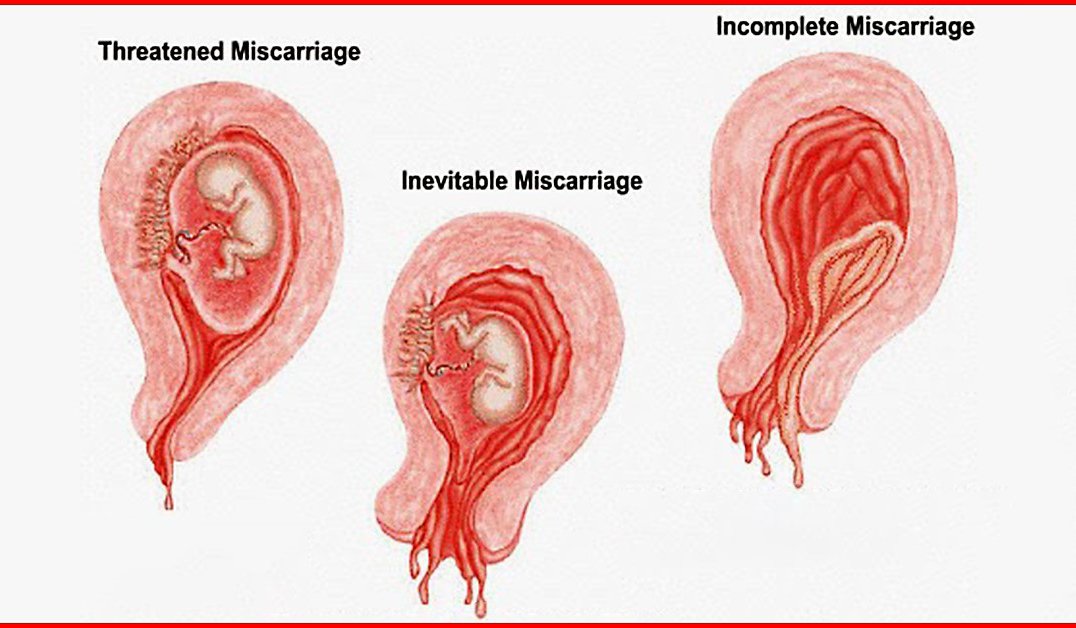 You may want to name your baby. Some women find comfort by doing something tangible like planting a tree, selecting a special piece of jewelry with a birthstone, or donating to a charity. On the anniversary you may want to share a special time with your partner.
You may want to name your baby. Some women find comfort by doing something tangible like planting a tree, selecting a special piece of jewelry with a birthstone, or donating to a charity. On the anniversary you may want to share a special time with your partner.
Helpful Websites and Books:
- Parents or other family members who have experienced the loss of a baby between conception and the first month of life can receive a free March of Dimes bereavement kit by contacting the Fulfillment Center at 1-800-367-6630 or at [email protected]
- Other Helpful Websites:
- www.mend.org
- www.thelifeididntchoose.com
- www.babyloss.com
- www.miscarriagesupport.org.nz
- Helpful Books:
- Miscarriage: Women Sharing from the Heart — by Shelly Marks, Marie Allen
- Miscarriage: A Shattered Dream — by Sherokee Isle, Linda Hammer Burns
- Surviving Pregnancy Loss: A complete sourcebook for women and their families — by Rochelle Friedman and Bonnie Gradstein
Compiled using information from the following sources:
1. March of Dimes.
March of Dimes.
2. Miscarriage Support Auckland Inc.
What you need to know about the condition of a woman who has experienced a pregnancy loss
Pain
Each situation is different, but for so many women, a miscarriage becomes an extremely painful (and bloody) experience. 33-year-old Rachel admitted that she was not ready for the fact that a miscarriage would turn out to be such a serious test for her: she talks about bleeding, cramps and swelling of the abdomen.
Some women who experience a miscarriage are forced to wait for a natural rejection of the fetus (or learn about it a few weeks after the development of the embryo has stopped). As one of our readers said: "I became a living coffin for my child."
Bleeding after a spontaneous abortion may last for several weeks. All this time, a woman may experience unstable emotions - at times she will feel better, but at some point she will plunge into darkness. The levels of hCG, the so-called pregnancy hormone, will come to the pre-pregnancy state only four to six weeks after the miscarriage. But the emotional state will not improve immediately.
But the emotional state will not improve immediately.
Emotions
36-year-old Jordan says the most valuable encouragement she received was from her friend, who said, “You don't have to try to cheer up as soon as possible. You can afford to feel sad and lie still for a while.”
Our reader, a survivor of pregnancy, says that the only person in her environment who did not try to discount her feelings and force her to “leave it all behind” was her husband, who said: “What you feel is normal.” It is important to give a woman the opportunity to accept the emotions that flooded over her, and not try to artificially instill in her carelessness, which will only feed the feeling of guilt.
Any emotion during this period has the right to exist. And to the space inside a woman.
Tact
31-year-old Ellie admits: “I wish my friends and family could learn to be less intrusive about new additions to the family. We very often hear the question: ‘when will the children be?’, but we rarely think about how painful it can be for those who are trying, but constantly experiencing miscarriages. Women should not be held accountable for what happens to their bodies while trying to create a new life. I would like people to be more aware of this and not demand answers to questions that are outside their area of responsibility.
We very often hear the question: ‘when will the children be?’, but we rarely think about how painful it can be for those who are trying, but constantly experiencing miscarriages. Women should not be held accountable for what happens to their bodies while trying to create a new life. I would like people to be more aware of this and not demand answers to questions that are outside their area of responsibility.
Women also report that they find it very frustrating to hear something like “you can always try again” if they do find the courage to share their loss story. As we know from numerous stories, "next time" may never come.
Balance
As women who have experienced a miscarriage say, it often happens that the family finds out about the loss of pregnancy very soon after the pregnancy was announced to her. Then a woman who has experienced a loss, already feeling moral devastation, has to take on the role of a comforter for her relatives, which is completely unacceptable in her position!
In an interview with Pop Sugar, one respondent said: “It came as a surprise to me that in the event of a miscarriage, you have to take responsibility for other people's reaction to this news. You survived the loss and you have to not only grieve, but also console others. It's very hard".
You survived the loss and you have to not only grieve, but also console others. It's very hard".
A woman should not support those who worry about her. They must support her by putting her emotions ahead of their own - after all, she is the one who goes through all the physical and emotional tests associated with a miscarriage. She also does not have the strength to emotionally serve her environment. This is simply unfair.
As Laurel stated, she found her friends to be either dismissive (“you'll get over it in the end”) or frightened and embarrassed by the magnitude of her grief. In fact, in both cases, they shifted the focus of attention to themselves and their feelings, in the end they did not provide her with any support at all.
Our readers also confessed: because of the fear of hurting their relatives and friends, they often simply hid information about what had happened from them. Which in the end only exacerbates the situation, because a vicious circle of questions in the spirit of “when?” does not end.
Specific
If you want to help, offer something specific or tangible. 34-year-old Michaela recalled that she was very supportive of help around the house and life. Bring food, cook something, offer help with cleaning, activities with older children, walking pets. Anything to give a woman time and space to recover.
These suggestions take the responsibility off the suffering person, who in many cases has found it difficult to ask for specific help - or even to determine what help he needs at the moment.
Little things
Women who experience loss appreciate every little effort, every attempt that friends and family make to support them. A condolence card, a blanket tucked in on time, hugs, a cup of tea, a favorite movie, a bouquet - anything that can say: "I see how bad you feel, I'm very sorry that this happened" works a thousand times better than the usual depreciation, silence or attempts to embarrass embarrassing.
Memory
Failed mothers want recognition. No wonder there is Mother's Day, who lost a child, which this year will fall on November 10th. Even if a woman has recovered from the loss and even managed to give birth to a child, she will still remember the experience. She will always be the one who went through the grief of loss. And it's important to remember this. And do everything possible so that her experiences are legitimized in the family. No need to pretend that nothing happened - because it was.
Collective destigmatization
Women who have reported having had miscarriages report how much easier it was for them to know they were not alone. The experience of isolation during a loss can be very traumatic and difficult, which is why it is important to open up, speak and share your stories (for example, women who went through a loss several years ago wrote in NAN, and a heroine who went through loss ten years ago - grief is always with her, and she finally felt that it was time to share it).
She is a Pop Sugar survey participant and said that a response story from a friend who went through the same thing helped her come out of isolation and realize that she can always reach out for support and ask relevant questions to someone who understands what she is talking about. .
Story sharing is an integral part of the recovery process. As one NEN reader said, her shame prevented her from speaking, which she was able to overcome only after learning that many other women had similar experiences.
A little more about how to properly talk with parents who have experienced loss can be found here - these are tips from the psychologists of the Light in Hands Foundation.
What to do after a miscarriage
If a woman has a miscarriage, it is important to take competent measures to restore health. This will help to cope mentally and prepare the ground for a new pregnancy. According to medical statistics, 15-20% of pregnancies end in spontaneous termination for various reasons. The symptoms of what happened rarely go unnoticed, which makes it possible to diagnose the pathology in time, consult a gynecologist, undergo adequate treatment and plan the birth of a child for the future.
The symptoms of what happened rarely go unnoticed, which makes it possible to diagnose the pathology in time, consult a gynecologist, undergo adequate treatment and plan the birth of a child for the future.
Experts classify spontaneous abortion into two categories:
1. Termination of biochemical pregnancy - the embryo leaves the uterine cavity in the first or third week after conception. A woman during this period most often does not suspect that she is carrying a child. Pregnancy becomes known only when testing for the content of hCG in the urine and blood. The blood that has left the body is usually perceived as menstruation, which, for unknown reasons, began outside the scheduled time. Units who carefully monitor their health go to the doctor.
2. Spontaneous abortion or miscarriage in early pregnancy - up to 22 weeks, when the weight of the embryo does not reach 0.4 kg.
Medical therapy
Any method is useful to maintain pregnancy.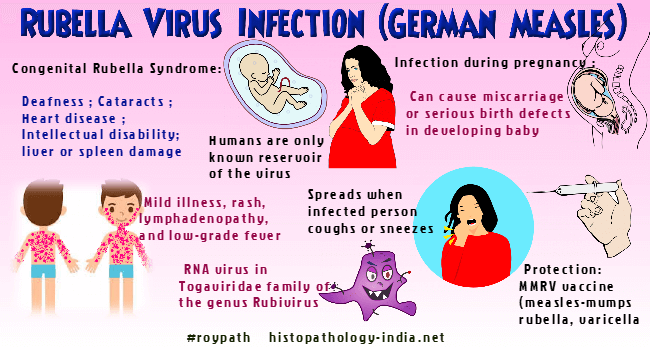 A qualified doctor develops an individual treatment protocol based on the available diagnostic data. Drugs used may include:
A qualified doctor develops an individual treatment protocol based on the available diagnostic data. Drugs used may include:
- sedatives;
- restorative therapy;
- hormone stabilizing drugs;
- uterine antispasmodics;
- vitamin and mineral supplements.
The specialist eliminates the threat of miscarriage in the early stages, tells how to prevent a relapse. In the later stages, the cervix is fixed with a special suturing (usually for a period of 16-25 weeks, if there is an ICI).
In case of unsuccessful attempt to stop spontaneous abortion, the following treatment tactics are used:
- Waiting – an organism freed from an embryo on its own does not require specialized treatment.
- Drug therapy - the patient is prescribed drugs that complete the removal of foreign tissues from the body. By causing severe spasms of the muscular walls of the uterus, the tablets provoke the expulsion of residues from the cavity.

- Surgery - is used in case of complications or inconvenient for the independent exit of the fetus, the bending of the uterus.
Curettage
Having symptoms of a miscarriage in early pregnancy and faced with the need for a curettage (gynecological cleansing), a woman worries about the state of her reproductive system. It is not worth doing this, the operation takes place in a gentle mode, with maximum delicacy in relation to the patient's childbearing ability. Curettage is performed when there is a risk of incomplete exit of the embryo from the uterine cavity and the development of infection in the pelvic organs due to the elements remaining in it. Ignoring the procedure can lead to blood poisoning and the formation of a pathology that prevents re-conception.
Vacuum aspiration, however, is performed more frequently, which is more gentle. The complex application of the method with hysteroscopy allows you to carefully examine the internal contents of the uterus in order to prevent poorly cleaned areas on the mucous membrane.
Preparation for gynecological cleaning (curettage)
Gynecological cleaning is performed for diagnostic and therapeutic purposes for various indications :
- after childbirth;
- for missed pregnancy, miscarriages;
- for menstrual irregularities;
- for accurate diagnosis of gynecological disorders.
Curettage is recommended a few days before the onset of menstruation. In this case, blood loss decreases and a favorable prognosis is given for rapid tissue recovery. The operation requires a preliminary examination, testing. This is :
- complete blood count;
- blood coagulation test;
- smear for examination of the bacteriological environment;
- analysis for STIs.
Before curettage, you stop taking any medications, dietary supplements that have not been discussed with a specialist. Even plant components that can affect blood clotting and provoke blood loss during surgery can be dangerous.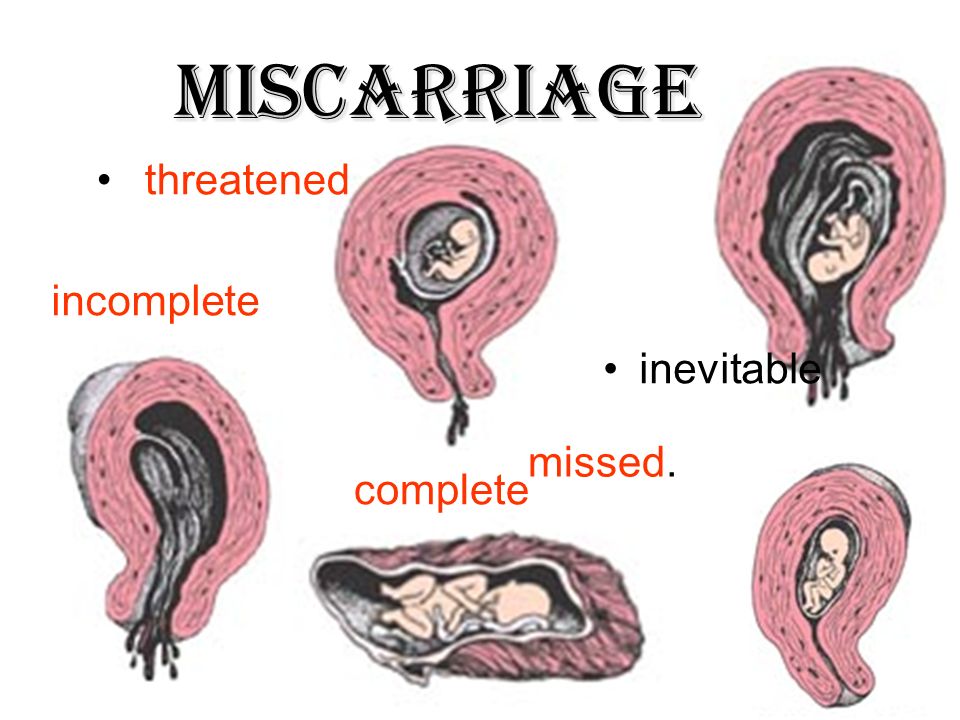 Your healthcare provider should be made aware of the medications you are taking so that they know what risks may arise.
Your healthcare provider should be made aware of the medications you are taking so that they know what risks may arise.
Rules for preparing for the procedure:
- refrain from sexual intercourse three days before the operation;
- avoid the use of intimate hygiene products (gels, creams, ointments, liquids), suppositories, tablets and vaginal sprays;
- Do not douche;
- Do not eat or drink 10 hours before surgery. This is necessary for high-quality anesthesia.
Cleansing
Curettage is carried out in a hospital, the woman is placed on the gynecological chair of the operating room. The doctor removes the upper layer of the mucous lining the uterine cavity from the inside. The exclusion of pain involves anesthesia. If there were signs of miscarriage in the early stages of pregnancy or at a later period, after which it spontaneously terminated, the dilated cervix allows for curettage without anesthesia. For anesthesia, intravenous administration of the drug is used, selected individually, taking into account the characteristics of the patient's body. A few seconds after the injection, the woman falls into a shallow sleep, the discomfort disappears, which makes the doctor's actions painless.
A few seconds after the injection, the woman falls into a shallow sleep, the discomfort disappears, which makes the doctor's actions painless.
A dilator inserted into the cervix straightens the walls of the organ, facilitating access to the internal cavity. Holding the neck, the specialist inserts a rounded probe with a small diameter, after which he replaces it with a more voluminous analogue. A special video camera attached to the end of the probe allows for hysteroscopy - examination of the cavity before curettage. Cleaning is done with a curette, shaped like a small spoon on a long handle. Carefully collected tissues are stored in a specialized sterile tube, which is later sent to the laboratory for histological examination.
The procedure rarely takes more than one hour, usually 20 minutes is enough for the doctor. Together with the cavity, the cervical canal is cleaned. Manipulations are called RDV - separate diagnostic curettage. Collected samples are placed separately.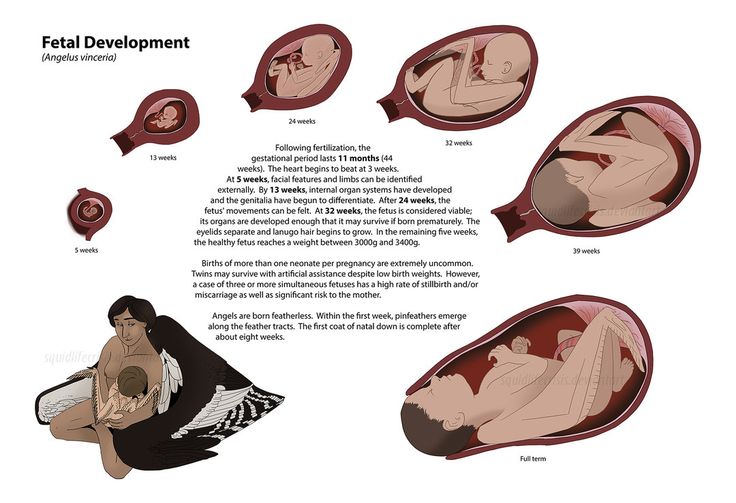 Histology is used to identify the structure of tissues in order to exclude the presence of atypical cells in them, indicating cancerous lesions, precancerous conditions. The study is carried out within two weeks, after receiving the results, the woman revisits the gynecologist for a follow-up examination.
Histology is used to identify the structure of tissues in order to exclude the presence of atypical cells in them, indicating cancerous lesions, precancerous conditions. The study is carried out within two weeks, after receiving the results, the woman revisits the gynecologist for a follow-up examination.
Curettage is often carried out for diagnostic purposes to determine the symptoms of pathological conditions in the functioning of the organs of the reproductive system. These may be:
- irregular cycle;
- bulky discharge and painful menstruation;
- bleeding during menopause;
- difficulties in conceiving in the absence of visible causes of pathology;
- suggestion of developing uterine cancer.
Possible complications
Complications can occur, as after any surgical intervention. A serious consequence is the discovery of uterine bleeding. In order to prevent it, oxytocin is used - injections stimulate the cessation of abnormal blood flow. Oxytocin will help if the bleeding is due to insufficient contraction of the uterus. In violation of blood clotting, it is ineffective.
Oxytocin will help if the bleeding is due to insufficient contraction of the uterus. In violation of blood clotting, it is ineffective.
Another complication of is hematometra, when blood clots accumulate in the uterine cavity, which can cause inflammation in the tissues. It is caused by a spasm of the cervix that occurred immediately after cleaning, which interferes with the evacuation of blood. Experts recommend the use of antispasmodics that relax the muscles of the organ and contribute to the normal outflow of blood. A woman should be alerted by pulling pains in the lower abdomen and a sharp cessation of discharge.
After cleansing, endometritis may occur when inflammation affects the lining of the uterus. A measure of therapy for a dangerous diagnosis is a course of antibiotics. Pain in the abdomen and a sharp increase in body temperature testify to the pathology. Any dangerous change in condition should be reported to the doctor immediately. In this case, countermeasures will be taken in a timely manner, which will eliminate the risks of developing more formidable complications.
How to behave after a miscarriage
A miscarriage that has occurred requires a certain tactic of behavior. Among the measures recommended by doctors:
- It is advisable to postpone a new pregnancy attempt for 3-6 months . Otherwise, the risk of repeating the undesirable development of events is high. If pregnancy occurs before the expiration date, there is no need to panic. The main thing is the supervision of a specialist.
- If you are waiting for , ask for advice on effective contraception.
- Follow your doctor's advice .
- Complete the required examinations , get tested.
Consult what effect the medicines you take will have on the fetus if you become pregnant during therapy. Find out after what period of time you can fearlessly try to conceive a child.
How to detect genetic pathologies during repeated pregnancy
If a miscarriage of the first pregnancy occurs due to a genetic factor, it is especially scary to decide on a second one. But you should not be afraid of this, with a well-designed therapy, the chances of success are more than great. Diagnostic procedures today are highly accurate and allow you to identify pathology in the early stages. Examination in this case is mandatory, as well as the following:
But you should not be afraid of this, with a well-designed therapy, the chances of success are more than great. Diagnostic procedures today are highly accurate and allow you to identify pathology in the early stages. Examination in this case is mandatory, as well as the following:
- who are over 35;
- has screening changes;
- who had markers of chromosomal pathologies and malformations of the embryo;
- who already have children with chromosomal abnormalities.
Ultrasound diagnostics can detect malformations in 80-85% of cases. However, the technology is not impeccably reliable, as it misses pathologies in 20% of situations. Biochemical screening, invasive examinations have valid data. The latest version of the study allows you to identify up to 99% anomalies.
When planning a new pregnancy, it is imperative to visit a geneticist. Screening diagnostics for the detection of abnormal genes will help eliminate the risks of possible pathologies, the factor of heredity and genetic failure during conception. Sometimes the threat of miscarriage in the early stages exists in almost healthy carriers. The examination will allow you to find out about the anomaly in advance and undergo treatment.
Sometimes the threat of miscarriage in the early stages exists in almost healthy carriers. The examination will allow you to find out about the anomaly in advance and undergo treatment.
What is a miscarriage like
A miscarriage that has occurred is complete when all parts of the embryo come out of the uterine cavity together with membranes and amniotic fluid. If parts of the fetus remain in the uterus, they speak of an incomplete miscarriage, which occurs more often in the early stages of pregnancy. To neutralize the negative consequences, to prevent the development of an infectious process in the tissues, the product of conception is evacuated from the uterine cavity by the methods of medical interruption, gynecological curettage, and vacuum aspiration. Therapy may include the use of drugs aimed at contracting the uterus and pushing the contents out. Ultrasound examination is considered to be the control method of diagnostics.
Why the body rejects the embryo
The causes of miscarriage often lie in the presence of chromosomal abnormalities in the fetus. Among the factors provoking rejection of embryos are also:
Among the factors provoking rejection of embryos are also:
- Heredity and genetic failure at the stage of egg fertilization by sperm.
- A non-viable fetus may appear as a result of various risk factors - environmental conditions, occupational hazards, viral illness of parents. It is impossible to neutralize these factors. The only way out of the situation is to reduce the likelihood of their manifestation by protecting the expectant mother from dangers during gestation.
- Hormonal imbalance caused by disruption of the endocrine system. The situation can be affected by an insufficient amount of progesterone in the mother's body or an excess of testosterone. With early detection of a failure of the hormonal system, a woman undergoes specially organized therapy before pregnancy.
- The presence of tumors , neoplasms in the pelvic organs.
- Isthmic-cervical insufficiency when the isthmus and cervix dilate prematurely, unable to cope with the increasing pressure caused by the growing fetus in the body.

- There is a risk of miscarriage in the presence of abnormalities in the work of the cardiovascular, renal systems.
- Drug addiction , alcohol dependence, maternal and paternal substance abuse.
- Depressive conditions , stress, nervous stress of a pregnant woman.
- Mechanical stress , blows, bruises, excessive physical labor of the future woman in labor.
- X-ray examination - radiation can cause miscarriage.
- Drug use . In the first trimester, you can not use potent medicinal formulas. Drugs can cause the development of defects in the embryo. Some decoctions of herbs are also contraindicated - parsley, tansy, cornflower, nettle, St. John's wort. It is forbidden to self-medicate. Each drug is agreed with the attending physician.
- Infectious and viral process in the body. Any sexually transmitted infection can provoke a miscarriage, which must be cured before pregnancy, otherwise there is a high risk of infection of the fetus in the womb.
 A great threat of miscarriage in the early stages exists due to viral infections and inflammation of the internal organs. A dangerous symptom is the high temperature of the mother, accompanied by intoxication of the body. At the stage of pregnancy planning, it is important to stop chronic diseases.
A great threat of miscarriage in the early stages exists due to viral infections and inflammation of the internal organs. A dangerous symptom is the high temperature of the mother, accompanied by intoxication of the body. At the stage of pregnancy planning, it is important to stop chronic diseases. - History of abortion , failed surgery, unprofessionalism of the doctor and unfortunate circumstances.
- Immunological factors .
The list of causes of miscarriage in the early stages of pregnancy and in the later period may be more extensive, in each case, doctors identify the pathology individually.
Isthmic-cervical insufficiency (ICI)
One of the most common causes of spontaneous miscarriage during pregnancy is CI - dilatation of the cervix and isthmus of the uterus as a result of increasing pressure from the growing fetus. Pre-pregnancy manipulations with the uterus (cervical dilation due to abortion, childbirth or curettage) affect the condition of the muscle ring. Damaged areas are tightened by scar tissue that does not have elasticity, is not amenable to stretching and contraction. ICI also has a functional nature when there is a hormonal imbalance.
Damaged areas are tightened by scar tissue that does not have elasticity, is not amenable to stretching and contraction. ICI also has a functional nature when there is a hormonal imbalance.
ICI occurs in the period from the 11th to the 27th week after conception, when the embryo begins to produce androgens in the mother's body with the launch of the adrenal glands. Taking into account the mother's hormones, their indicator can be exceeded - this softens the cervix, opens and shortens it. Harmful bacteria and microorganisms penetrate into the formed channel, infecting the fetal egg. The initial stages of ICI do not have obvious symptoms, since they do not entail the tone of the uterine muscles. With the loss of strength of the membranes, amniotic fluid pours out. There are no pain sensations.
If a woman has had a miscarriage that started with amniotic fluid, she should report it to her doctor when monitoring a subsequent pregnancy.
Treatment of isthmic-cervical insufficiency
Endocrine disorders are corrected by prescribing hormonal drugs. An assessment of the condition of the uterus is carried out by a doctor a couple of weeks after the start of taking medications. They say about positive dynamics when the opening is suspended and no further expansion of the neck is observed. In the absence of the planned effect, surgical intervention is prescribed. Similar measures are used for the traumatic nature of the neck deformity. You should not be afraid of the operation, the doctor acts delicately, without causing additional injuries to the patient, without causing discomfort to the baby growing in the womb. The procedure is most effective in the early stages of pregnancy. Suturing can significantly reduce the risk of infection of the embryo through the lower edge of the cavity.
An assessment of the condition of the uterus is carried out by a doctor a couple of weeks after the start of taking medications. They say about positive dynamics when the opening is suspended and no further expansion of the neck is observed. In the absence of the planned effect, surgical intervention is prescribed. Similar measures are used for the traumatic nature of the neck deformity. You should not be afraid of the operation, the doctor acts delicately, without causing additional injuries to the patient, without causing discomfort to the baby growing in the womb. The procedure is most effective in the early stages of pregnancy. Suturing can significantly reduce the risk of infection of the embryo through the lower edge of the cavity.
Surgical intervention takes place in a hospital. Before the operation, the pregnant woman is examined. After the procedure, the vagina is sanitized, for which the suturing site is treated with chlorhexidine and furatsilin for three days. The patient needs to undergo a weekly follow-up examination with the attending physician, where he assesses the situation, making adjustments to the therapeutic protocol if necessary. The sutures are removed at the 38th week of pregnancy. During this time, the neck matures, preparing the birth canal for the passage of the fetus. Many women in labor worry that they will need a caesarean section if they have stitches, but this is not true. In most cases, women give birth on their own.
The sutures are removed at the 38th week of pregnancy. During this time, the neck matures, preparing the birth canal for the passage of the fetus. Many women in labor worry that they will need a caesarean section if they have stitches, but this is not true. In most cases, women give birth on their own.
Immediate action is recommended if the amniotic sac prolapses (falls out) into the cervix between 16 and 24 weeks. The suturing of the neck obliges the woman to observe bed rest, strictly follow the daily routine, avoid physical exertion, and do not skip taking medications. In rare cases, complications occur. Among them, the eruption of sutures through the tissues, provoked by the frequent tension of the muscles of the uterus. To prevent tone, tocolytics are prescribed - medicines to prevent premature birth. The expectant mother should be prepared for frequent examinations and smears, which may be caused by the likelihood of accumulation of pathological microflora on the suture threads.
It is also important to conduct psychological therapy, where a woman is taught relaxation techniques. The behavior of the future mother is a decisive factor in the successful bearing of the fetus in case of pregnancy complications. Panic and fuss create an unfavorable prognosis in stabilizing the situation. If a spontaneous abortion occurred for reasons of ICI, when you can get pregnant after a miscarriage, the doctor will say. Ideally, the period should be at least two years. The specialist must also take measures to prevent a repeated situation of losing a child.
In addition to the suture, ICI correction is also carried out using an obstetric pessary. An alternative method is the imposition of a special ring of hypoallergenic materials on the cervix. Silicone is the most commonly used. The ring creates additional support, preventing the opening of the neck.
Uterine hypertonicity - risk prevention
Uterine contractions before natural delivery is called hypertonicity. The condition is not an independent disease, it signals a malfunction in the body, often manifesting itself in the early stages of pregnancy. The causes of the pathological phenomenon are:
The condition is not an independent disease, it signals a malfunction in the body, often manifesting itself in the early stages of pregnancy. The causes of the pathological phenomenon are:
- Hormonal disorders caused by insufficient function of the placenta, ovaries, problems with the adrenal glands causing imbalance.
- Genital infantilism organ defects.
- Neoplasms , tumors in the uterus that are not necessarily malignant (eg, fibroids).
- During pregnancy infectious processes, viral diseases.
- CCI - opening of the neck under increasing pressure created by the growing embryo.
- Immunological problems .
- Chronic diseases of the body (cardiovascular disorders, renal failure).
- Past miscarriages early pregnancy, symptoms of which may recur, induced abortions.

In addition to physiological causes, psychological factors are of no small importance. A woman who is in a depressed state can provoke hypertonicity in herself.
You can feel the tension of the muscles of the uterus on your own, without the help of a specialist. This is evidenced by the heaviness that appears in the lower abdomen, pulling pains in the lumbar region. Symptoms are similar to painful menstruation. Arising in the first trimester, the condition provokes spontaneous abortion, missed pregnancy, death of the fetal egg. In the subsequent period, premature birth due to hypertonicity is likely.
Why does the tension of the walls of the uterus cause irreversible consequences? The reason is the disturbed blood supply to the placental tissues, the occurrence of hypoxia of the embryo and the slowdown in the development of the emerging child. Following the contraction of the muscles of the uterus, the placenta does not contract, which causes its detachment and provoking the release of the fetal bladder.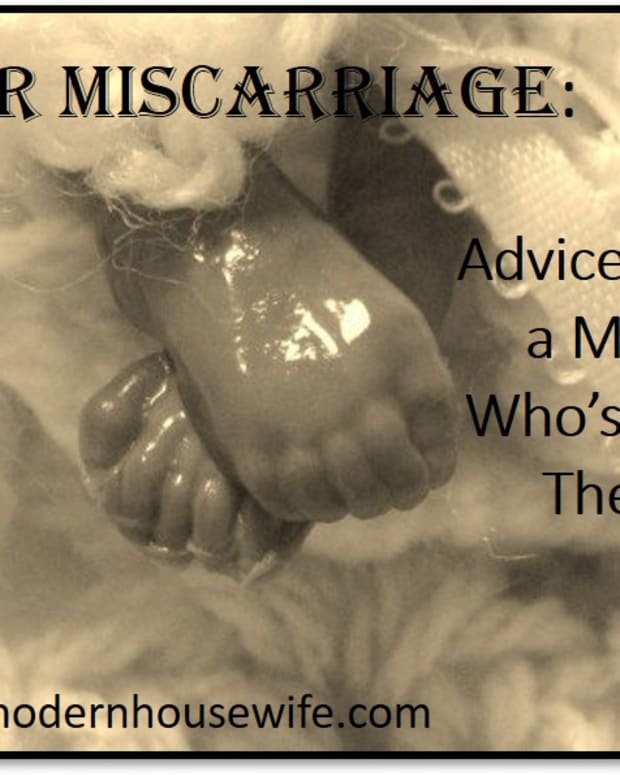
Hypertonicity is diagnosed during a scheduled visit to a specialist. Stabilization of the situation requires the appointment of sedative drugs and antispasmodics. A strengthening effect is provided by therapy with the inclusion of vitamin B6, magnesium. In most cases, the measures taken are sufficient to neutralize the risks. Self-treatment, which can cause irreversible consequences, is strictly prohibited. With hypertonicity, the main rule for a pregnant woman is calmness and lack of physical activity. Some women who have had a successful delivery say they "didn't get up" during their entire pregnancy. With hypertonicity, sexual intercourse is also excluded.
If the threat cannot be neutralized, hospitalization is recommended. It is especially dangerous when severe cramping pain is complemented by spotting. To lie down "for preservation" is an adequate measure in the struggle for the birth of a healthy and strong baby. In the hospital walls, a pregnant woman is prescribed a vaginal examination, ultrasound. If necessary, a woman takes urine and blood tests, checks the hormonal background, and is examined for the presence of STIs.
If necessary, a woman takes urine and blood tests, checks the hormonal background, and is examined for the presence of STIs.
At the onset of labor activity before the 34th week, the condition is tried to be stabilized with tocolytics. The most dangerous period is from the 25th to the 28th week, when the woman is recommended the maximum possible bed rest. After that, the fetus has every chance of survival. In order to quickly form the pulmonary system of the embryo, allowing it to survive with an early birth, hormones are prescribed.
Having an unfavorable prognosis for miscarriage and the threat of miscarriage, it is necessary to take up prevention at the stage of conception planning.
Stages of spontaneous abortion
There are certain signs that attract attention and divide the course of a miscarriage into specific stages:

Symptoms of a miscarriage - how not to miss the threat
If there is a threat of miscarriage in the early stages, the following symptoms may occur: The pain may be monotonous or come in waves.
A woman who does not know how an early miscarriage occurs should listen to her inner state.
Should alert:
- spasmodic pain impulses;
- Drawing pain in the lumbar region.
In the later stages, the above symptoms are added:
- liquid discharge from the vagina, which may indicate damage to the amniotic sac;
- pain when urinating;
- internal bleeding, which warns of a deterioration in the general condition, fainting, dizziness, pallor of the skin. All this is an indication for emergency hospitalization of a pregnant woman.
The beginning of an abortion is characterized by more pronounced symptoms of a miscarriage - contraction-like pain, severe dizziness, loss of strength. Instead of smearing discharges, clot-like ones appear, abundantly manifested during movement. Pregnancy can be saved if the area of detachment of the fetal egg is small and the fetal heartbeat is determined.
The third stage is useless for saving the fetus. There is girdle pain in the lower back and abdomen. Together with abundant blood loss, a fetal egg comes out of the uterus. Incomplete miscarriage requires curettage of the uterine cavity if parts of the embryo or membranes of the fetal egg remain in it, otherwise there is a high risk of complications that will endanger the life of the mother.
Together with abundant blood loss, a fetal egg comes out of the uterus. Incomplete miscarriage requires curettage of the uterine cavity if parts of the embryo or membranes of the fetal egg remain in it, otherwise there is a high risk of complications that will endanger the life of the mother.
In rare cases, complications and serious health consequences can occur after a spontaneous abortion. But in the majority of situations, the body independently copes with what happened, expelling the parts remaining in the uterine cavity with a natural contraction of the muscles. An early spontaneous miscarriage does not always occur, a dangerous condition can also occur in the later stages. Some women try to provoke the release of the fetus with decoctions of herbs and medications. This is fraught with complications, including sepsis, dysfunction of the reproductive organs, after which pregnancy becomes impossible.
Methods of diagnosis
The symptoms of a threatened miscarriage at an early stage can be determined by a doctor during a visit to the antenatal clinic. The specialist will check the size of the uterus, determine the tone of its muscles, the condition of the cervix, and examine the discharge from the genital organs. A reliable method to identify the existing threat is transvaginal ultrasound diagnostics. The doctor draws attention to segmental muscle contractions of the uterus, detachment of the fetal egg. Genetic testing will help analyze the likely causes of a miscarriage. The patient's history is carefully collected.
The specialist will check the size of the uterus, determine the tone of its muscles, the condition of the cervix, and examine the discharge from the genital organs. A reliable method to identify the existing threat is transvaginal ultrasound diagnostics. The doctor draws attention to segmental muscle contractions of the uterus, detachment of the fetal egg. Genetic testing will help analyze the likely causes of a miscarriage. The patient's history is carefully collected.
Planning a new pregnancy
The medical community is unanimous in the issue of planning a new pregnancy after a spontaneous abortion. Conception is not recommended for at least 3-6 months. During this period, the woman's body will recover and gain strength to bear the fetus. Observation by a doctor, harmonization of hormonal levels, examination of parents to identify possible pathologies are important. In order not to become pregnant in the first months, it is recommended to use contraceptive methods prescribed by your doctor.
Examination after a miscarriage includes blood and urine tests, examination of the microflora of the vagina with a smear, detection of overt and latent genital infections, glucose and hormone tests, examination of partners for biological compatibility. Planning is an important step towards having a healthy baby. After the studies, the woman is prescribed strengthening therapy. It is important to completely reconsider eating habits, to exclude factors that are harmful to well-being. Vitamins, folic acid are used. Fast food, food containing carcinogens and preservatives are excluded from the diet. Subject to the rules recommended by the doctor, a successful pregnancy with a favorable outcome is likely.
It is not uncommon for a pregnancy test to show two lines after a miscarriage. This is due to the restructuring of the body, the organs of the reproductive system. It is important to report the incident to your doctor. The presence of remnants of embryonic tissue in the uterus can provoke a positive test result. In this case, immediate curettage is necessary, which neutralizes the risk of inflammation and infection. To accurately determine her condition, a woman needs to undergo an ultrasound diagnosis, take tests to determine hCG in the blood.
In this case, immediate curettage is necessary, which neutralizes the risk of inflammation and infection. To accurately determine her condition, a woman needs to undergo an ultrasound diagnosis, take tests to determine hCG in the blood.
The question of whether it is possible to get pregnant after a miscarriage worries many parents. The answer is unequivocal - yes, if you follow the recommendations of experts, carefully plan a new conception, monitor your well-being and state of your health.
Components of success after a miscarriage
Spontaneous abortion can provoke not only the health of the patient, but non-compliance with simple rules can be a threat. To reduce the risk of losing a child during pregnancy, you need to:
1. Keep calm – it is important for a mother to exclude from her life all the factors that make her nervous. Irritation is not the best way to normalize the condition. In order to stabilize the emotional background, rest is recommended, the use of soothing teas with the permission of the doctor. Good results are given by decoctions of chamomile, lemon balm, mint.
Good results are given by decoctions of chamomile, lemon balm, mint.
2. Avoid taking unnecessary medicines and preparations. But it is unacceptable to stop the therapy prescribed by the doctor on your own. Each step must be discussed with the gynecologist.
3. Eliminate harmful occupational factors. Work in the chemical industry and other hazardous facilities can create an undesirable background in the body, which prevents normal gestation. It is important to understand what is of great value to the mother - the birth of a healthy baby or a career factor. Many refuse to work to increase the chance of having a baby.
4. Eliminate bad habits. A woman experiencing miscarriage should not drink alcohol and smoke. It is forbidden to do this and the future father. This negatively affects the quality of spermatozoa, provokes difficulties with conception and risks of deviations in the development of the embryo.
5. Take vitamin complexes, specially designed to prepare the body for pregnancy, the formation of basic conditions for its favorable course.
Take vitamin complexes, specially designed to prepare the body for pregnancy, the formation of basic conditions for its favorable course.
6. Eat right. A complete, balanced diet works wonders. With a lack of weight, a nutritionist will develop an adequate diet for a woman with the inclusion of a large amount of protein foods rich in vitamins and trace elements of vegetables, fruits, and cereals. Recommended fats contained in fish, seeds, nuts, avocados, olives.
7. Get rid of extra pounds. Obesity adversely affects the development of pregnancy. Science has proven that enhanced nutrition during this period is not required. The main thing is its balance.
Infections during pregnancy
Infectious processes transferred before pregnancy develop immunity in the mother to similar agents of influence. Primary infection poses a great threat, so vaccination will be useful before planning conception. Perinatal diagnosis allows you to detect the infectious process at the initial stage and prevent its harmful effects. This is possible if the pregnant woman is registered from an early date.
This is possible if the pregnant woman is registered from an early date.
Infection may develop due to an infection transmitted by airborne droplets. It is the most dangerous, since it is almost impossible to prevent it. This applies to mumps, measles, rubella. HIV and hepatitis infect the body through sexual contact, similar to chlamydia. Listeriosis is transmitted with poor-quality products. A pregnant woman can pass infections to a developing baby. Pathology is determined by profile tests of latent infection.
Routine pregnancy monitoring involves regular testing. Sexual infections are determined using a smear, ultrasound shows deviations in the development of the baby, and KGT is aimed at listening to the work of the fetal heart muscle. If there is a suspicion of a serious infection of the embryo, blood sampling from the umbilical cord and amniotic fluid analysis are practiced.
Infection of a child also depends on concomitant factors. The speed of diagnosis, the literacy of the treatment, the type of pathogen, the duration of the pregnancy are taken into account.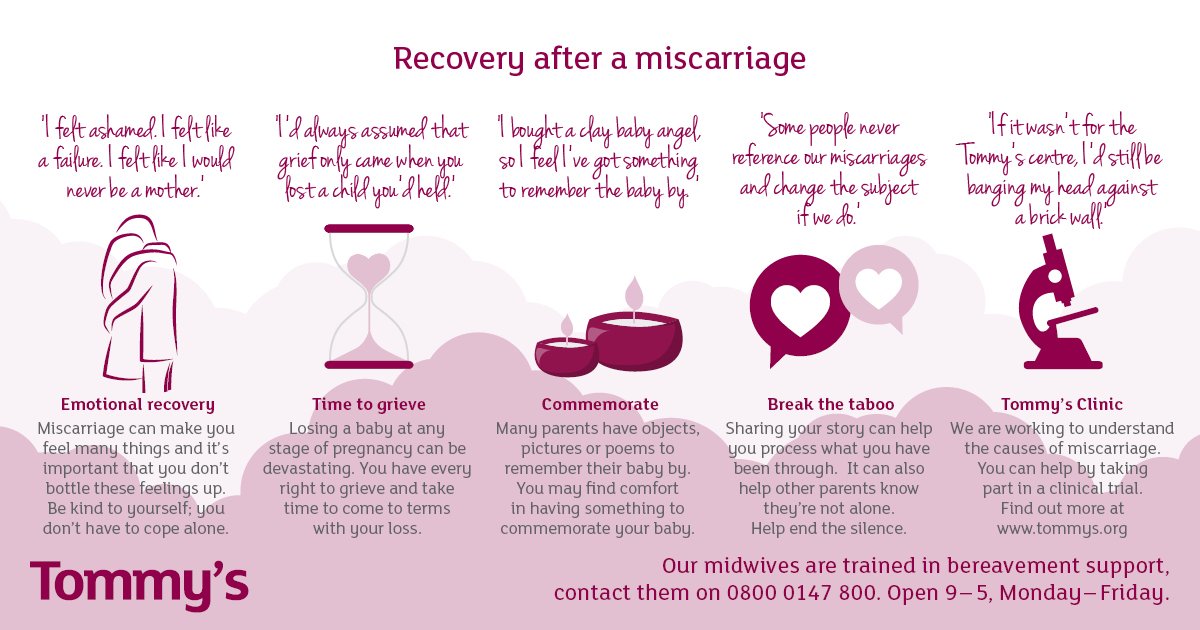 The following infectious processes deserve special attention:
The following infectious processes deserve special attention:
1. Viral etiology - a huge number of viruses poses a danger to a pregnant woman. The threat is genital herpes, rubella, infectious type erythema, cytomegalovirus, hepatitis B, measles, mumps, chickenpox.
2. Bacterial infections, detected during the analysis of biological materials (feces, urine, blood), examination of certain organs of the body. Active reproduction provokes a rapid growth in the number of bacteria in the vagina. Not all microorganisms pose a threat to the child. Dangerous candidiasis, streptococcus, chlamydia, bacterial vaginosis, cystitis.
The successful course of pregnancy is threatened by intestinal infections, often activated in the summer. Their carriers can be animals and poorly processed food before consumption. Of particular danger are listeriosis, salmonellosis, toxoplasmosis.
Prevention of infections during pregnancy
Infection of the mother poses a threat to the life of the fetus.:max_bytes(150000):strip_icc()/hemorrhage-in-miscarriage-meaning-2371523-FINAL-f2ab04cab1cc491e964a45e682f93da5.png) From the 3rd to the 12th week, the infected organism responds with a miscarriage or the formation of malformations of the child. From the 11th to the 25th - developmental delay. At a later date, organs are deformed and prerequisites for premature birth are created. In order to prevent intrauterine infection, it is recommended to apply a number of rules:
From the 3rd to the 12th week, the infected organism responds with a miscarriage or the formation of malformations of the child. From the 11th to the 25th - developmental delay. At a later date, organs are deformed and prerequisites for premature birth are created. In order to prevent intrauterine infection, it is recommended to apply a number of rules:
- be examined for the detection of STIs;
- examine blood, determine the presence of antibodies to infection carriers, pathogens;
- avoid contact with sick people, visits to crowded places where there is a possibility of infection by airborne droplets;
- screen pets for dangerous infections, treat them if necessary, or remove them from the home until the threat is eliminated;
- to exclude fast food, store-bought semi-finished products from the diet, subject meat and fish to thorough heat treatment;
- remove from the diet sushi and other culinary delights purchased in restaurants, cafes;
- thoroughly wash hands, fruits, vegetables with special disinfectants that are not capable of harming a pregnant woman and a child;
- it is planned to visit a gynecologist, undergo examinations recommended by a doctor, take tests, take vitamins;
- register at the first sign of pregnancy;
- prepare for conception, cure infections, vaccinate.
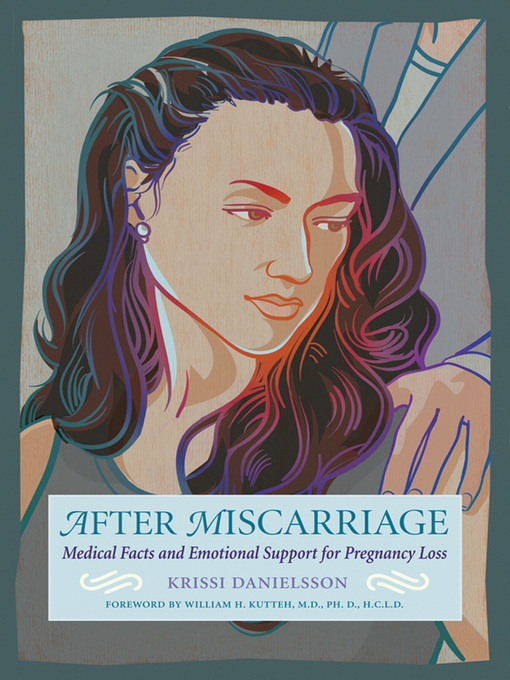
It is also important for the child's father to follow most of the recommended rules. If only the mother undergoes treatment, a relapse is likely during sexual intercourse, neutralizing the beneficial effect of therapy.
A woman who has had a miscarriage in the past should be alert to any deviations from the norm in her state of health. It is important to pay attention to ailments, pain, weakness, dizziness. Accounting for an early consultation will create conditions for the bearing of the fetus and the birth of a child. There is no need to be afraid that a miscarriage will forever deprive the joy of motherhood.
Having completed a course of examinations, passing tests and following the measures prescribed by the doctor to treat imbalances in the body, you will create all the conditions for a favorable pregnancy outcome. Tune in to the positive, protect yourself from worries, worries, stress. Feel the support of loved ones, hope for the best! Get advice from good specialists to rule out any unfavorable prognosis before conception or take steps to neutralize them.






